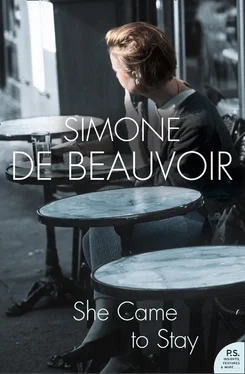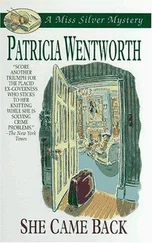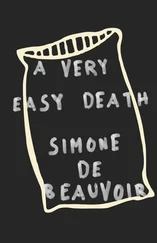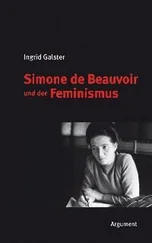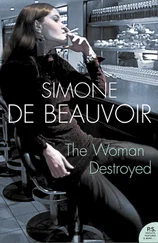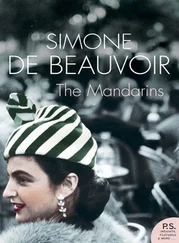‘Here you are, this will put new strength into us,’ she said. ‘How do you want it? Neat, or with water?’
‘Neat,’ said Gerbert.
‘D’you think you’ll be able to get home?’
‘Oh, I’m learning to hold my whisky,’ said Gerbert with dignity.
‘You’re learning …,’ said Françoise.
‘When I’m rich and run my own house, I’ll always keep a bottle of Vat 69 in my cupboard,’ said Gerbert.
‘That will be the end of your career,’ said Françoise. She looked at him with a kind of tenderness. He had pulled his pipe out of his pocket and was filling it with great deliberation. It was his first pipe. Every evening, when they had finished their bottle of Beaujolais, he put it on the table and looked at it with childish pride; he smoked it over his glass of cognac or marc. And then they went out into the streets, a little dazed after the day’s work, the wine and the brandy. Gerbert strode along, his lock of black hair over his face and his hands in his pockets. Now that was all over. She would often be seeing him again, but only with Pierre or with all the others, and once more they would be like two strangers.
‘And what about you! You hold your whisky well for a woman,’ said Gerbert, quite impartially. He looked hard at Françoise. ‘But you’ve been overworking today, you ought to get a little sleep. Then I’ll wake you up, if you like.’
‘No. I’d rather finish it off,’ said Françoise.
‘Aren’t you hungry? Wouldn’t you like me to go out and get you some sandwiches?’
‘No, thanks,’ said Françoise. She smiled at him. He had been so considerate, so attentive. Whenever she felt discouraged she had only to look into his laughing eyes to regain her confidence. She would like to have found words in which to thank him.
‘It’s almost a pity that we’ve finished,’ she said. ‘I’ve become so used to working with you.’
‘But it will be even greater fun when we go into production,’ said Gerbert. His eyes glistened; the whisky had given a flush to his cheeks. ‘It’s so good to think that in three days everything will be starting all over again. How I love the opening of the season.’
‘Yes, it will be fun,’ said Françoise. She pulled her papers towards her. He was apparently not at all sorry to see the end of their ten days together; that was only natural. She was not sorry either; surely she had no right to expect Gerbert alone to be sorry.
‘Every time I walk through this dead theatre I get the shivers,’ said Gerbert. ‘It’s dismal. This time I really thought it was going to stay closed the whole year.’
‘We’ve had a narrow escape,’ said Françoise.
‘Let’s hope that this lasts,’ said Gerbert.
‘Oh, it will last,’ said Françoise.
She had never believed in the possibility of war. War was like tuberculosis or a railway accident: something that could never happen to me. Things like that happened only to other people.
‘Are you able to imagine some really terrible misfortune befalling you personally?’
Gerbert screwed up his face: ‘Nothing easier,’ he said.
‘Well, I can’t,’ said Françoise. There was no point in even thinking about it. Dangers from which it was possible to protect oneself had to be envisaged, but war did not come within the compass of man. If one day war did break out, nothing else would matter any more, not even living or dying.
‘But that won’t happen,’ murmured Françoise. She bent over her manuscript; the typewriter was clicking, and the room smelt of Virginian tobacco, ink, and the night. On the other side of the window-panes, the small, secluded square was asleep under the black sky; and, some way away, a train was moving through an empty landscape … And I am there. I am there, but for me this square exists and that moving train … all Paris, and all the world in the rosy shadows of this little office … and in this very instant all the long years of happiness. I am here, at the heart of my life …
‘It’s a pity that we have to sleep,’ said Françoise.
‘It’s even more of a pity we can’t know that we are asleep,’ said Gerbert. ‘The moment we begin to be aware that we are sleeping, we wake up. We gain nothing by it.’
‘But don’t you think it’s marvellous to stay awake while everyone else is asleep?’ Françoise laid down her fountain pen and listened attentively. Not a sound could be heard; the square was in darkness, the theatre in darkness. ‘I’d like to think that the whole world is asleep, that at this moment you and I are the only living souls on earth.’
‘Oh no, that would give me the creeps.’ He tossed back the long lock of black hair that kept falling into his eyes. ‘It’s like when I think about the moon; all those icy mountains and crevasses and nobody about on them. The first person to go up there will have to have a nerve.’
‘I wouldn’t refuse if anyone were to suggest going,’ said Françoise. She looked at Gerbert. Usually, they sat side by side, and she was happy to feel him near her even though they did not speak. Tonight, she felt that she wanted to talk with him. ‘It seems queer to think of what things are like when one isn’t there,’ she said.
‘Yes, it does seem queer,’ said Gerbert.
‘It’s like trying to imagine you’re dead; you can’t quite manage it, you always feel that you are somewhere in a corner, looking on.’
‘It’s maddening to think of all the goings-on one never will see,’ said Gerbert.
‘It used to break my heart to think that I’d never know anything but one small section of the world. Don’t you feel like that?’
‘Perhaps,’ said Gerbert.
Françoise smiled. From time to time, conversation with Gerbert reached a dead-end; but it was difficult to extract a definite opinion from him.
‘I feel calmer now, because I’m convinced that wherever I may go, the rest of the world will move with me. That’s what keeps me from having any regrets.’
‘Regrets for what?’ said Gerbert.
‘Having to live only in my own skin when the world is so vast.’
Gerbert looked at Françoise.
‘Yes, specially since you live such a well-regulated life.’
He was always so discreet; this vague question amounted to a kind of impudence for him. Did he think Françoise’s life too well regulated? Was he passing judgement on it? I wonder what he thinks of me … this office, the theatre, my room, books, papers, work … Such a well-regulated life.
‘I came to the conclusion that I must be resigned to making a choice,’ she said.
‘I don’t like having to make a choice,’ said Gerbert.
‘At first it was hard for me; but now I have no regrets, because I feel that things that don’t exist for me, simply do not exist at all.’
‘How do you mean?’ said Gerbert.
Françoise hesitated. She felt very strongly about this; the corridors, the auditorium, the stage, none of these things had vanished when she had again shut the door on them, but they existed only behind the door, at a distance. At a distance the train was moving through the silent countryside which encompassed, in the depths of the night, the warm life of her little office.
‘It’s like a lunar landscape,’ said Françoise. ‘It’s unreal. It’s nothing but make-believe. Don’t you feel that?’
‘No,’ said Gerbert. ‘I don’t think I do.’
‘And doesn’t it irk you never to be able to see more than one thing at a time?’
Gerbert thought for a moment.
‘What worries me is other people,’ he said. ‘I’ve a horror when someone talks to me about some chap I don’t know, especially when they speak well of him: some chap outside, living in his own sphere, who doesn’t even know that I exist.’
Читать дальше
